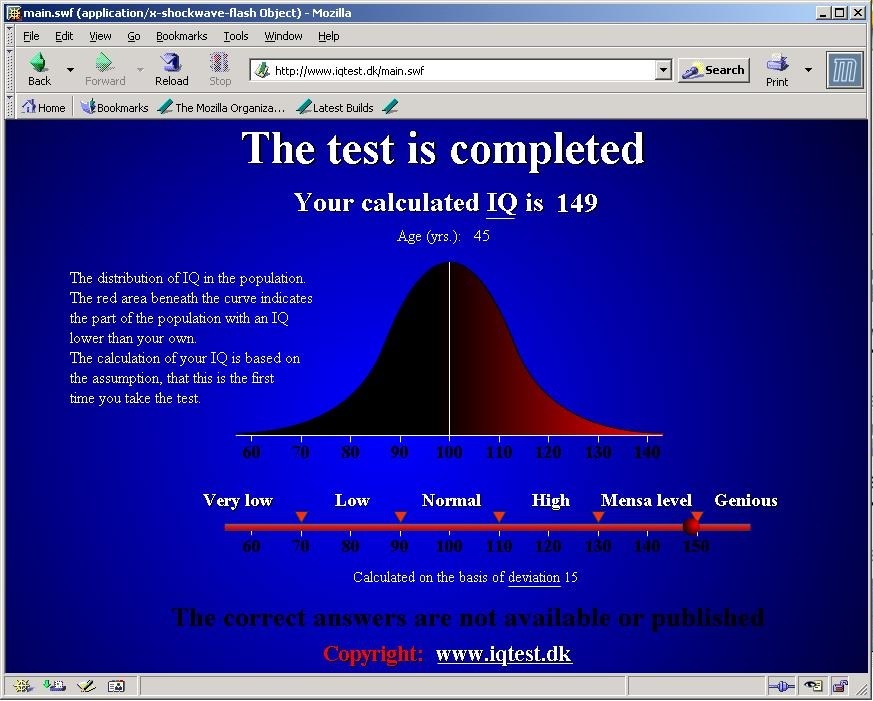I get these questions now and then, but I have no simple answer so I took an IQ test at around the time I was applying for promotion to tenured full professor (2005). This is not to say that IQ is the only prerequisite, there are other skills such as EQ, creativity, persistence, and social skills that are also important. But IQ lends itself easier to quantification and measurement.
![]()
I took a test published by the Swedish science magazine Illustrerad Vetenskap ('Illustrated Science'), but that test was only able to measure IQ levels up to 145.
Thus, it was not a great test since the highest result
"Your IQ is higher than 145"
(full score) could not determine the IQ very well.

![]()
I was then instead recommended a well-known Danish test that had been calibrated using answers from over 300,000 people. I got the following result:

![]()
The above scores are IQ scores using the (most common) standard deviation of 15, meaning that a score of 149 is around 3.25 standard deviations away from the mean value of 100. Sometimes, other standard deviations are used for calculating the scores from the tests. For example, some scales use a standard deviation of 24, making high scores much higher. A score of 149 on the common SD15 scale corresponds to 178 on an SD24 scale, explaining some of the extremely high scores you sometimes see.
![]()
The tests were part of a challenge proposed for fun by the Ph.D. students in the DECIDE Research Group. As expected, the research directors (professors) came out on top. The Ph.D. students were also doing well, trailing only by around 15-18 points and all scoring above 130.
![]()